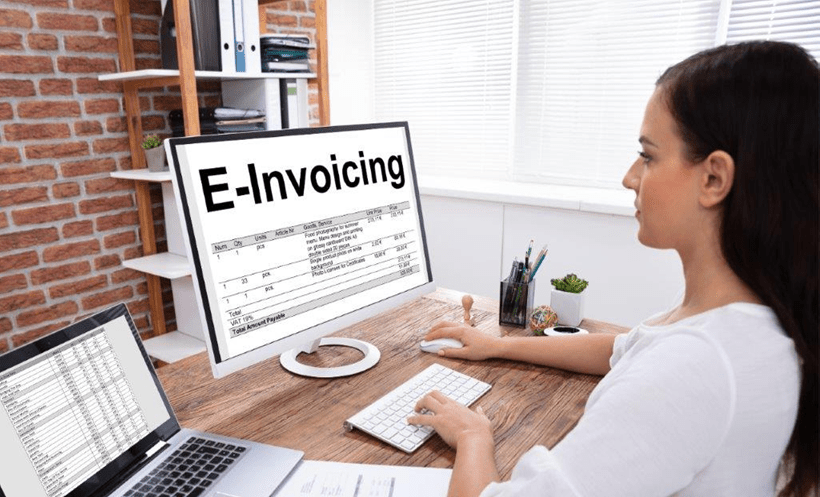Public Programs
IRBM E-INVOICING WITH NEW SALES AND SERVICES TAX
Course objective
On completion of the programme, participants will be able to:-
- Understand the latest Frequently Asked Questions (FAQ) of treatment of income and expenses as per IRBM’s requirements
- Understand the MyInvois workflow process (manual and via API method from accounting and Enterprise Resource Planning (ERP) software
- Understand the required MyInvois information field in myInvois portal
- Understand the types of income and expenses which requires compliance of e-invoicing and understand the parties or income which exemption requirements of e-invoicing applies.
- Understand and solve post e-invoicing implementation challenges and impacts
- Understand and apply the correct sales and service tax rates on products and services sold.
METHODOLOGY
Where appropriate, activities will include the following:
- Lecture and Video Presentation
- Gamified interactive quizzes session
- Faciliated Group Discussions with Q&A
- Open Question and Answer (Q&A) Sessions
- Hands on MyInvoice and adjustments documents with Q&A.
WHO SHOULD ATTEND
Mainly business owners, directors, senior management and their accounting, taxation, internal auditors, finance.
Staff from other departments like Information Technology, Supply Chain, Human Resource, Sales, Procurement, Shipping, Marketing, Customer Services Purchasing, project management and operations with finance related operational documentation responsibility who wish to understand the post implementation challenges of e-invoicing impact to departmental business operations.
Course Content
Module 1: Overview and requirements of e-invoicing after implementation
- Overview of IRBM E-invoicing latest updates
- MADANI digitalisation agenda e-invoicing phases for businesses.
- IRBM related offences if failure to comply
- Latest tax incentives for investment in digitalisation for-e invoice implementation (Budget 2024 & Budget 2025-if applicable)
- Digital grant application from Malaysian Digital Economic Corporation (MDEC) for Micro Small Medium Enterprises (MSME)
- Types of e-invoice format (consolidated e-invoice (applicable to certain B2C transactions), individual e-invoice (B2B and B2G transactions) and self-billed e-invoices and self-billed credit/debit notes.
- Sales and Service Tax (based on 1 July 2025 Sales Tax Order and Service Tax 2018 Amendment)
- Overview of SST, SST Threshold and Criteria of Taxable Services and Taxable Persons.
- Parties exempted from paying SST.
- Rates of service tax for new sectors affected – Construction, Leasing, Private healthcare services for Non Citizens, Education and Financial Services
- How to apply B2B exemption for service tax returns and filing in mySST
- How to apply sales tax exemption for new and existing manufacturers and traders who produce exempted goods/services after 1 July 2025
- Fields that need to be keyed during e-invoicing issue.
- Sales tax refund for bad debts.
Module 2: E-invoicing workflow process in myInvois portal
- IRBM e-invoice general workflow from pre submission step and e-invoicing reporting processes for organisations-Manual Process
- Instant validation process by IRBM using Continuous Transaction Control (CTC) model
- What is E-Invoice PEPPOL network?
- Taxpayer Identification Number (TIN) validation
- Scenarios of seller cancellation and buyer rejection, and resubmission of e-invoices within time frame window.
- Amendments of e-invoicing invoices processes to IRBM
- 72-Hours grace period for e-invoice cancellation by seller and rejection by buyers
- Issuing Debit Notes and Credit Notes for adjustments.
- The role of refund notes to buyer which is also component of e-invoice
- Understand the components of e-Invoice issue requirements in MyInvois
- Supplier’s TIN, business registration number, MSIC code update in MyInvois profile management
- Buyer’s TIN including GENERAL TIN (Appendix 1 IRBM guidelines)
- Supplier’s business registration number/Identification Number/Passport number
- Generating e-invoice code/number and date – without ERP API integration
- Description of Product or Service column
- Tax type – Tourism Tax, Sales Tax, Service Tax, Low value goods tax, Exemption from tax
- Tax rate
- Tax amount
- Total excluding tax
- Total including tax
- Prepayment and billing frequency
- Import and Export information (Mandatory for IRBM and Royal Malaysian Customs data harmonisation) for self-billed e-invoices.
- Post implementation Impacts on business operation and essential financial process (Accounts Receivable and Accounts Payable) and its related functions.
Module 3: E-invoicing requirements for specific transactions (IRBM Specific guidelines (Oct 4th 2024 latest update)
- Types of income or expenses that requires e-invoicing as proof of income and proof of expenses
- Creation/Issuance of e-invoice relating to various scenarios-MyInvois
- E-invoices creation – Seller to Buyer
- Self-billed e-Invoices – How to issue self-billed e-invoices based on related scenarios with general BUYER TIN numbers for domestic, import and export transactions
- Commission payments to agents, dealers, distributors (monetary or non-monetary benefit)-periodic statements and basis used (accrual or paid) basis.
- vii-Issuing e-invoices
- Applicable for retail services/service management/property development/investment holding industries income ie
- recurring fees and progress billing
- refundable deposits, non-refundable deposits, advance payments (prepayments),
- inter-company charges
- interest income/expense, dividend income, dividend expense, investment income, rental income, treatment of utilities bills under rental arrangement, loyalties points, vouchers and gift points.
- Obtaining e-invoices supporting from suppliers
- Transactions with Buyers – How to obtain e-invoicing from retail suppliers for staff claims and reimbursement
- Statements/ Bills on a periodic basis from suppliers– Applicable to specific industries only (telecommunications, healthcare, insurance
- Disbursement and reimbursements with third parties’ arrangement
- Employment perquisites and benefits, directors’ fees & certain expenses incurred by employee on behalf of the employer

- 10 & 11 NOV 2025
- MON & TUE
- 9AM - 5PM
- DORSETT GRAND SUBANG HOTEL, SELANGOR / REMOTE ONLINE TRAINING
By: HYBRID PUBLIC PROGRAM
Download Program Brochure:
Follow Us:
Program Highlights & Key Details
How To Submit an Enquiry to Us?
- Fill in the form below and submit to us.
- Initiate a conversation via live chat on the bottom left of our website by stating: “Hi, my name is [your-name]. I’ve already submitted the form for this training.”
- We’ll promptly reach out to you regarding the training you’re interested in.
Program Enquiry Form
THANKYOU FOR YOUR ENQUIRY
Lorem ipsum dolor sit amet, consectetur adipiscing elit. Ut elit tellus, luctus nec ullamcorper mattis, pulvinar dapibus leo.
